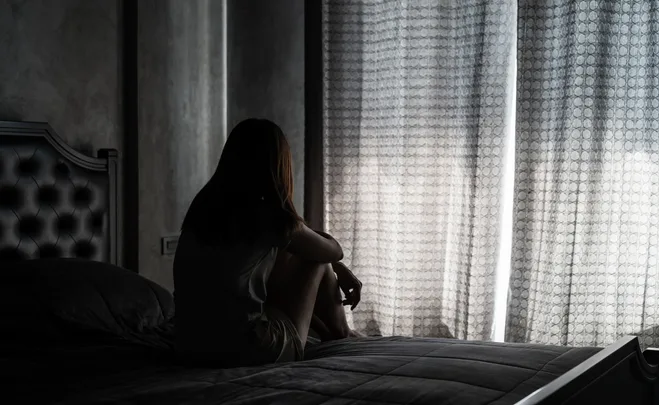The Australian Federal Budget has promised some major wins for women—but there are crucial parts where it still falls short.
During last night’s Budget, which was announced in an election year, Treasurer Josh Frydenberg revealed the Morrison Government would pledge $1.3 billion over the next six years in support of women who have or will suffer at the hands of domestic violence. This includes $127.8 million for trauma-informed national counselling services to support victim-survivors, as well as $290.9 million to support women’s recovery from the trauma of violence.
While the boost is a positive (and long overdue) move from the government, its implementation is where its success will lie. The funding will begin rolling out via its 10-year National Plan to End Violence Against Women and Children (beginning mid-2022)—but note the plan in itself already sparked controversy when the government allocated a mere two weeks for public feedback on its first draft in January.
Hayley Foster, CEO of domestic violence organisation Full Stop said in a statement that it was “pleasing” to see some recognition for women and children’s safety in the Budget.
“For far too long, we have placed the burden on victim-survivors of violence and abuse, including children, to flee into the night with a garbage bag over their shoulder to seek refuge, and start over.”
But she warned that the funding hasn’t addressed specific long-term elements to some of the real challenges women still face in Australia.
“With Australia falling from 12th to 70th in the world for women’s economic participation and opportunity in the last 14 years, we were really hoping to see bold action to address the wage gap, accessibility of childcare, superannuation deficiencies, protection from sexual harassment at work, and social and affordable housing for women.”
Foster added that additional funding in housing would be needed alongside measures to address problematic violence supportive behaviours if we really want to achieve a significant reduction in violence against women and children in Australia.
“As always, it comes down to competing priorities.”
Indeed, while the government also pledged a $2 billion boost for affordable housing and extra support for first-home buyers, it failed to address any long term solutions to the housing crisis.
Are Media’s new campaign, UnHoused brought the housing crisis among women in Australia to the forefront this month. With 49,000 women facing homelessness on any given night, it calls for the government to commit to an increased spending of $7.6 billion over the next four years in order to create permanent housing for women.
Chair of Homelessness Australia CEO, Jenny Smith, reiterated that the government’s shortfall could see homelessness services facing a $39.4 million funding black hole from July 2023, after the Budget failed to provide appropriate ongoing funding for staff costs, despite surging demand for services.
“We are dealing with an utterly toxic set of circumstances. As rents surge, so does demand for homelessness services. Yet we have a $40 million black hole to contend with,” Smith explained in a statement.
“This will make life harder for women escaping violence, people recovering from serious health crises and those who have just been frozen out of the rental and labour markets.”
She added that the draft National Plan to End Violence Against Women and Children expressly recognised the need for more social house, yet it’s been “totally overlooked”.
“Each year an estimated 7,690 women return to perpetrators because they have nowhere to go, and an estimated 9,120 women become homeless. Over the next year it is going to be a lot harder to help these women.”
Per research from the Nowhere to Go report in 2021, if 16,810 homes were built in Australia—equal to the number of women returning to violent situations because they cannot find long-term, affordable housing—it would create 47,000 jobs and provide a $15.3 billion boost to the economy.
PropTrack economist Angus Moore also called out the missing link in the Budget’s narrowed focus on housing affordability.
“What we’d be looking for as a long-term solution to affordability is building more homes, and building more homes where people want to live,” he told realestate.com.au.
“Schemes like the Home Guarantee Scheme are good as short-term ways to help first-home buyers, but if we’re serious about solving affordability, the only long-term solution is building more homes.”
Meanwhile the leader of the Greens, Adam Bandt, alsaid the Morrison government for falling short.
“This Budget will not keep you safe from the climate crisis, will not put an affordable roof over your head,” he said.

Tonight, opposition leader Anthony Albanese will deliver his response to the Morrison government’s election Budget, which has been widely recognised as a pacifier aimed at getting the Liberals re-elected later this year.
And yes, while the Budget announcement was an acknowledgement that there is major work to be done for women’s safety in Australia, it pays to note the government’s commitment remains surface level. Substantive change will come when they listen to the full story—after all, you can’t write the conclusion by only reading the introduction.
To help us in calling on the major parties to address the women’s housing crisis, sign our petition and share this message:
“The line between having a permanent roof over your head and facing homelessness is thin—much thinner than most of us realise. Almost three-quarters (73%) of Australian women say their vote in this election would be influenced by a party’s commitment to providing housing for women in unsafe conditions. Let’s make our politicians listen.”
For domestic violence support, please contact Full Stop Australia, or call 1800 RESPECT (1800 737 732).










